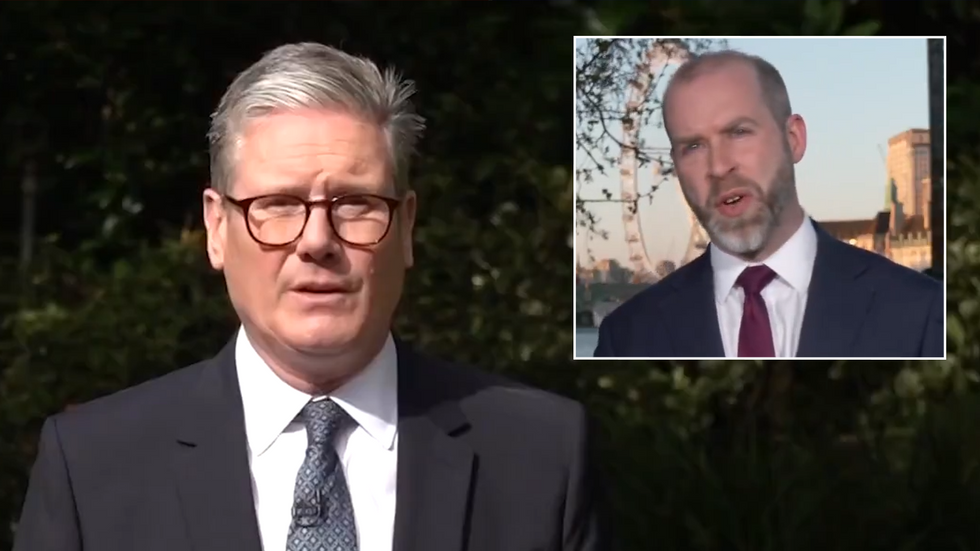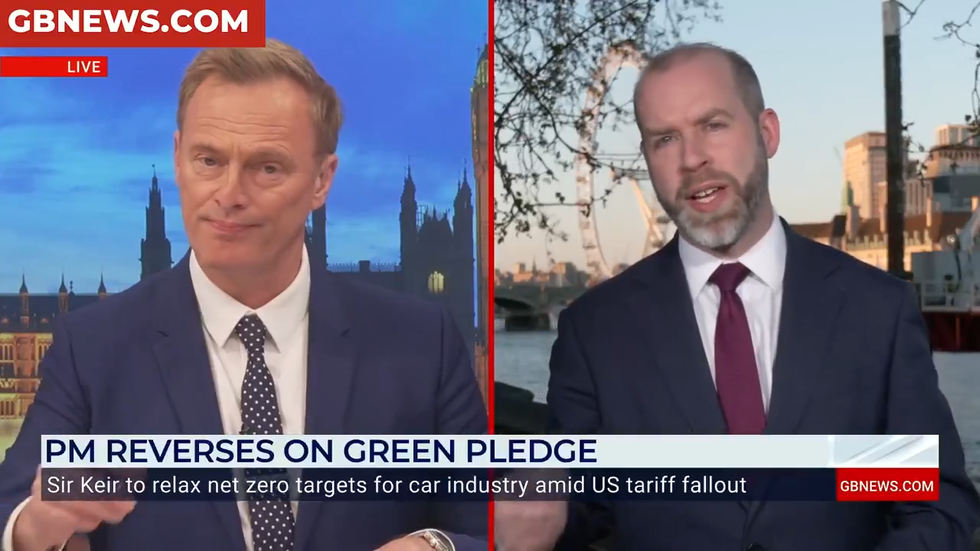Ben Chapman
Guest Reporter
Labour's Business Secretary Jonathan Reynolds has firmly rejected calls to abandon the government's net zero targets, despite recent adjustments to zero emission vehicle regulations.
The defence comes as Prime Minister Keir Starmer announced a relaxation of rules for UK car manufacturers, allowing them to produce hybrid vehicles for an additional decade.
This policy shift has sparked debate among environmental advocates who view zero emission vehicles as essential to the UK's carbon reduction strategy.
When challenged on GB News about completely ditching net zero ambitions, Reynolds insisted such a move would be detrimental to Britain's automotive sector.

He emphasised that the regulatory changes were designed to support rather than abandon the UK's long-term environmental commitments.
"That's not true. 80 per cent of what we make in the UK, we export abroad," Reynolds told GB News presenter Martin Daubney.
LATEST DEVELOPMENTS
"If we weren't willing to make the transition, we lose the entire automotive sector over time. The products themselves are fantastic and businesses are right around that."
The Business Secretary was responding to Daubney's suggestion that net zero should be "ditched altogether" rather than merely watered down.
Reynolds highlighted the export-dependent nature of Britain's car industry as a key reason for maintaining the transition to cleaner vehicles.
He insisted that abandoning environmental targets would ultimately threaten thousands of jobs in the automotive sector.

Sir Keir Starmer announced the policy shift during a speech to workers at the Jaguar Land Rover plant in the West Midlands.
The Prime Minister stated he would rebuild the country's industrial strength "in defiance of a volatile world."
Under the new regulations, car manufacturers will now be allowed to produce hybrid vehicles for another ten years.
This marks a significant change from previous plans that would have forced a rapid transition to purely electric vehicles.
The decision comes in response to economic challenges, including potential tariffs from abroad.
Starmer's government has framed these adjustments as a pragmatic approach to supporting British industry while maintaining long-term environmental goals.
Reynolds explained that despite challenges, the UK electric vehicle market remains strong.
"Let's not forget that in the UK, we still had the biggest electric vehicle market in Europe last year," he stated.
"We have seen a significant rise, about a fifth of sales are electric vehicles. That in itself is quite impressive."
The Business Secretary acknowledged that private demand has not increased as expected across European countries.
He defended the regulatory adjustments as necessary for maintaining British competitiveness.
"The way this regulation was working was undermining that competitiveness," Reynolds said.
"To back British industry and products, we had to make this absolutely essential change."
Find Out More...
The defence comes as Prime Minister Keir Starmer announced a relaxation of rules for UK car manufacturers, allowing them to produce hybrid vehicles for an additional decade.
This policy shift has sparked debate among environmental advocates who view zero emission vehicles as essential to the UK's carbon reduction strategy.
When challenged on GB News about completely ditching net zero ambitions, Reynolds insisted such a move would be detrimental to Britain's automotive sector.

He emphasised that the regulatory changes were designed to support rather than abandon the UK's long-term environmental commitments.
"That's not true. 80 per cent of what we make in the UK, we export abroad," Reynolds told GB News presenter Martin Daubney.
LATEST DEVELOPMENTS
- UK's wind farm 'dumping grounds' EXPOSED: Residents 'powerless' as huge turbines erected near homes
- Michelle Dewberry blasts Rachel Reeves move causing millionaires to ‘flee’ Britain in droves
- Tom Harwood and Emily Carver CLASH in bitter row as UK pool final is contested by two trans players
"If we weren't willing to make the transition, we lose the entire automotive sector over time. The products themselves are fantastic and businesses are right around that."
The Business Secretary was responding to Daubney's suggestion that net zero should be "ditched altogether" rather than merely watered down.
Reynolds highlighted the export-dependent nature of Britain's car industry as a key reason for maintaining the transition to cleaner vehicles.
He insisted that abandoning environmental targets would ultimately threaten thousands of jobs in the automotive sector.

Sir Keir Starmer announced the policy shift during a speech to workers at the Jaguar Land Rover plant in the West Midlands.
The Prime Minister stated he would rebuild the country's industrial strength "in defiance of a volatile world."
Under the new regulations, car manufacturers will now be allowed to produce hybrid vehicles for another ten years.
This marks a significant change from previous plans that would have forced a rapid transition to purely electric vehicles.
The decision comes in response to economic challenges, including potential tariffs from abroad.
Starmer's government has framed these adjustments as a pragmatic approach to supporting British industry while maintaining long-term environmental goals.
Reynolds explained that despite challenges, the UK electric vehicle market remains strong.
"Let's not forget that in the UK, we still had the biggest electric vehicle market in Europe last year," he stated.
"We have seen a significant rise, about a fifth of sales are electric vehicles. That in itself is quite impressive."
The Business Secretary acknowledged that private demand has not increased as expected across European countries.
He defended the regulatory adjustments as necessary for maintaining British competitiveness.
"The way this regulation was working was undermining that competitiveness," Reynolds said.
"To back British industry and products, we had to make this absolutely essential change."
Find Out More...
